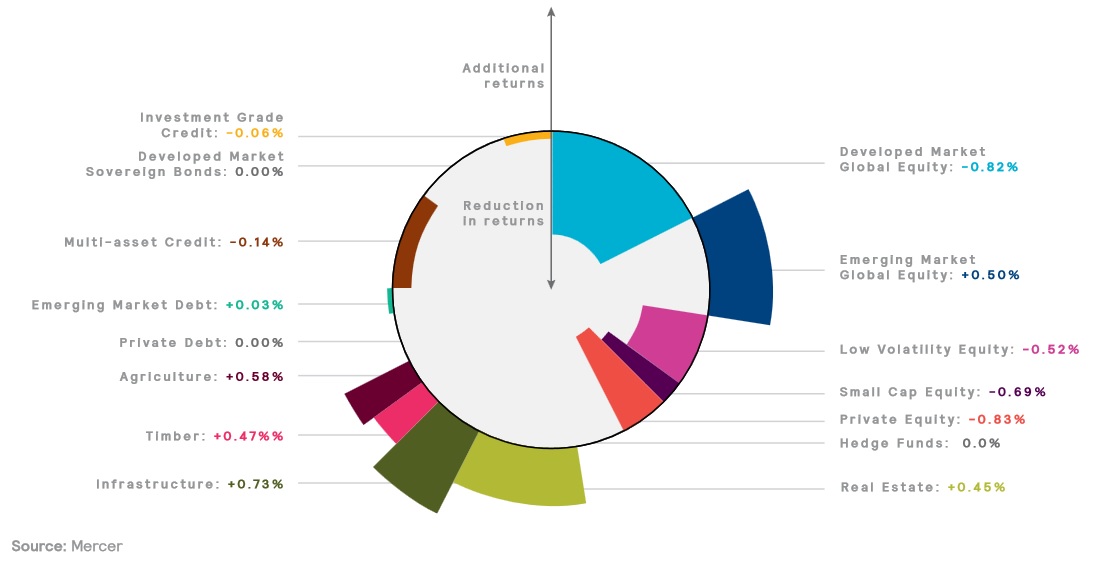How to Make Money from a Changing Climate
Asset owners can reap rewards from positive, long-term action on climate change, according to a new report from Mercer—but action must be taken now to address the risks.
Published today, the consultancy giant’s report—“Investing in a time of climate change”—set out four scenarios forecasting how the environment would be affected by increasing global temperatures. It gave granular detail on how various asset classes, industry sectors, and sub-sectors would be impacted.
“We need a culture shift in asset management… There is a level of discomfort in making that change.” —Edward Mason, Church Commissioners for EnglandSpeaking at the launch of the report, Edward Mason, head of responsible investment at Church Commissioners for England, called for a “culture shift” in asset management.
“Asset managers are used to thinking short-term, not as ‘future makers’,” Mason said, citing the term coined in the report to refer to investors that are taking positive leading action to reduce carbon emissions and heighten investment in renewable energy sources. “There is a level of discomfort in making that change,” he added.
By analysing and forecasting the future impact of technology, resource availability, extreme weather conditions, and government and international policy, Mercer’s report set out how a diversified portfolio would be affected by different climate change scenarios.
With positive (and radical) changes—including $65 trillion of investment in renewable energy sources and energy efficiency resulting in a 56% drop in emissions by 2050—Mercer forecast that emerging market equity and debt would benefit, as would real assets such as infrastructure and real estate. Developed market equities were forecast to experience a decline in annual returns, along with private equity, as global temperatures were forecast to rise by roughly two degrees Celsius.

The chart shows Mercer’s best case scenario for the impact of climate change on a hypothetical portfolio. Positive increases in annual returns emanate outwards from the circle; width reflects asset allocation.
Mercer contrasted this with three alternative scenarios. The worst case set out the impact of minimal action, resulting in a four-degree rise in average temperatures. The report forecast that almost all asset classes would experience a decline in annual returns, and none would benefit.
“For investors, the key question is whether they will actively take a role in encouraging a two-degree outcome in line with our ‘transformation’ scenario,” the report said. “Investors have two key levers they can use to help steer in this direction: investment and engagement.”
The report also said institutional investors were recognising their “potentially meaningful role to play” in reflecting the positions of most countries regarding acknowledging scientific evidence of the need to limit temperature increases.
Meanwhile, Mason praised recent shareholder resolutions at the annual general meetings of oil c Shell and BP, which were backed by major institutional investors and received overwhelming support from other shareholders as well as the companies’ boards.
The Global Investor Coalition on Climate Change last month produced a report, titled “Climate Change Investment Solutions: A Guide for Asset Owners”, which sets out practical guides and examples of how to engage with managers and companies, and how to reduce the carbon footprint of an investment portfolio.
Related Content: The ESG Takeover & The Capitalist’s Guide to ESG
